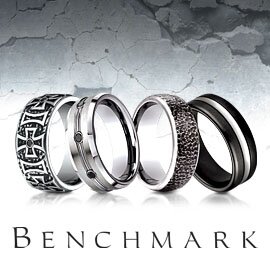How traditional manufacturing and unconventional sales channels can be a perfect fit.
Thanks to the rediscovered appreciation of traditional watchmaking, a number of young watch manufacturers with varying degrees of vertical integration and interesting approaches to watchmaking have appeared in recent years. All segments of the market have benefitted from new technical and philosophical concepts which have been met with great interest by watch enthusiasts.
Despite positive industry trends, independent manufacturers nevertheless face difficulties connecting with independent jewelers. The main reason apart from limited funds for marketing and public relations is the virtual streamlining of the structures in watch retailing. Zeitwinkel, a Swiss manufacturer of high-end movements and watches, set off to find different ways to reach interested customers.
Market concentration and the effect on independent participants
A vast majority of the brands in the medium and high-end watch market today are owned by just a handful of groups. At first glance, this promises advantages for retailers such as better after-sales service and fewer vendors that need to be managed.
On the downside, specialized watch retailers gradually lose their independence and become dependent on these dominant vendors. Many retail jewelers complain about being influenced on the choice of brands they carry, about high inventory allocations, guidelines for the store design, and challenging payment terms. In effect, some retailers have been reduced to brand outlets instead of advising their customers on the watches best suited for them.
The consequence of this market reality is independent manufacturers struggle to gain access to attractive retail outlets. Despite lively interest by customers in new brands and corresponding openness on the retailers’ side, “friendly pressure” from the dominant corporations lets many independent retailers shy away from listing new brands in their stores under the implicit if not actual threat of being delisted by a corporate brand or replaced by a manufacturer’s own boutique.
Zeitwinkel: differentiation through traditional manufacturing
One of the independently owned manufacturers of fine mechanical time pieces is Zeitwinkel. Headquartered in the heart of the traditional Swiss watch making region it produces only a few hundred watches per year. The company was founded in 2007 by a group of friends and watch enthusiasts who wanted to create an authentic watch with focus more on inner values than on celebrity testimonials or a far-fetched association with a sport. The first step was to develop our own automatic manufacture movement from the start and not based on any other movement in the market. This unique movement is used in all Zeitwinkel watches.
Zeitwinkel believes that a “manufacturer” in the original sense of the word should actually have humans creating watches. Visitors to the atelier in St-Imier are often astonished to find no large machines, no conveyor belts, and no factory halls with countless watchmakers’ tables. Every movement and every watch is assembled manually by one of Zeitwinkel’s watchmakers. Each watch is destined for a specific customer.
Zeitwinkel has all components made in Switzerland and the traditional watchmaking regions of Germany, without having components produced overseas and then “naturalized”. The company philosophy is to produce only “Real Swiss Made” because its founders are convinced their customers expect this from a Swiss watch.
The decision to allocate most of its resources on quality and authentic watches is a deliberate decision by Zeitwinkel against manufacturing mediocre products that are then aggressively promoted as “luxury goods”. If you visit the Zeitwinkle facility, visitors get to talk to one of the founders, along with enjoying a great view of grazing cows from the atelier at the foot of the Mont Soleil.
A small manufacturer’s unconventional sales channels
Zeitwinkel follows a long-term strategy rather than aiming for short-term success. In the US market, the Swiss manufacturer of high-end wristwatches has enjoyed successful partnerships with select watch retailers for several years now.
Instead of trying to be present in all regional markets, Zeitwinkel focuses on finding partners who recognize the potential for differentiation by selling a true “manufactured” product made by hand in limited quantities. This approach without doubt requires greater effort by the retailer than selling one of the aggressively advertised brands where the customer visit often consists only of a discussion of rebates.
The additional time spent presenting a less well-known brand is well worth the effort and enables the retailer to persuade on the basis of product features, quality aspects and the brand philosophy rather than price. The reward is a unique position in the local marketplace with higher margins and satisfied customers who are much more likely to return for future purchases.
Beyond the mainstream of luxury watch distribution, retailers of high-quality products requiring explanations and especially jewelers seem to be more open when it comes to experimenting with new brands and business opportunities. They rely less on manufacturers’ marketing and more on their own creativity, sales expertise, and customer network.
Zeitwinkel recognized the potential of jewelry experts as distribution partners alongside the traditional sales channels. Starting with a first cooperation in Switzerland and then expanding the concept throughout Europe and Asia, Zeitwinkel is open to partnerships with jewelry experts in the US as well. “Jewelry retailers recognize the potential of the Zeitwinkel brand and they are very good at explaining the hand-assembled movements and the value of a truly Swiss-made timepiece to their discerning customers,” states Peter Nikolaus, founder of Zeitwinkel.
Competitive advantages beyond the mainstream
The market for high-end timepieces is, to a large extent, divided between just a few players and the resulting concentration limits access and growth opportunities for both retailers and for new manufacturers. Independent manufacturers like Zeitwinkel are met with interest by customers but face challenges in reaching them through existing watch retailers.
|
Wednesday, January 01, 2014
Opportunities In A Booming Market For High-end Watchesby Stefan Kunz AT: 01/01/2014 02:31:25 PM LINK TO THIS ENTRY
TAGS:
0 Comments:
Post a Comment
|
|||



